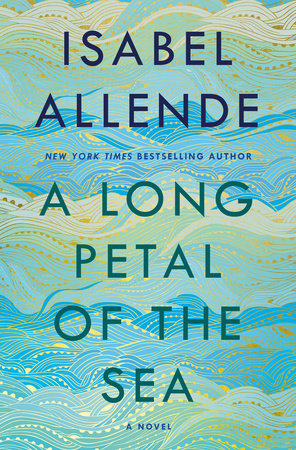A Long Petal of the Sea Reader’s Guide
By Isabel Allende


1. Victor and Roser face a turbulent escape from Spain and endure extraordinary challenges before they finally secure passage to safety in Chile. What characteristics do they possess that allow them to overcome these difficulties? How do their strengths complement each other, and how does this dynamic serve them later in their lives?
2. Why do you think Victor refuses to tell Roser or Carme about Guillem’s death until after Marcel is born? Do you agree with his choice?
3. In order to gain a spot on the SS Winnipeg, Victor and Roser must marry. Were you surprised by this drastic measure? As husband and wife, what obligations do you think they owe to each other in these unusual circumstances?
4. The Delmaus and the del Solars are in vastly different social classes but are thrust together due to their circumstances. How are the tensions of war experienced differently by the two families?
5. When Felipe visits a pregnant Ofelia, she says, “Being a woman is a misfortune.” What does she mean? What does this say about her attitude towards motherhood? How does her view of womanhood differ from Roser’s?
6. Many romances appear over the course of the novel. What are the different ways in which the characters approach the concept of love? Was there a particular relationship that stood out to you?
7. Discuss the relationships between the children and the parents. What do they argue about, and what does this tell us about the differences in values between families and between generations? How do these relationships change over the course of the novel?
8. In his poetry, Pablo Neruda captures the anxiety, grief, and joy of a generation of Chileans. In what ways do you think his poetry is meaningful to the immigrants to Chile? How did the incorporation of Neruda’s poetry as chapter openers affect your reading experience?
9. How does the phrase “history repeats itself ” apply to the events of the novel? Do you think the characters’ previous experiences prepare them to face the reoccurrences?
10. After Victor reconnects with Ofelia at the Athenaeum café, he notes that “if one lives long enough, circles close.” Are there any other instances of this type of closure in the novel? Have you ever experienced something similar in your own life?
11. We eventually learn that Carme abandons Roser and Aitor Ibarra so that she would not be a burden to them. How might have things turned out differently if she hadn’t left?
12. For most of their lives, Victor and Roser are outsiders as they take on the roles of exiles, refugees, and immigrants. Can you think of a time when you have felt like an outsider? Were you welcomed or pushed away? Has reading about Victor and Roser influenced the way you view outsiders to your own culture or community?
13. The historical context of the novel has a major influence over the course of the characters’ lives—from the fallout of the
Spanish Civil War to the outbreak of World War II to the overthrow of the government in Chile. Were you surprised to learn about any of these historical events or the ways in which they were interconnected?
14. The book’s title comes from Pablo Neruda’s description of Chile as “a long petal of sea and wine and snow . . . with a belt of black and white foam.” What does this reveal about Chile as a country and as a culture? If you were to describe your home in poetic language, what would you say?
Just for joining you’ll get personalized recommendations on your dashboard daily and features only for members.
Find Out More Join Now Sign In